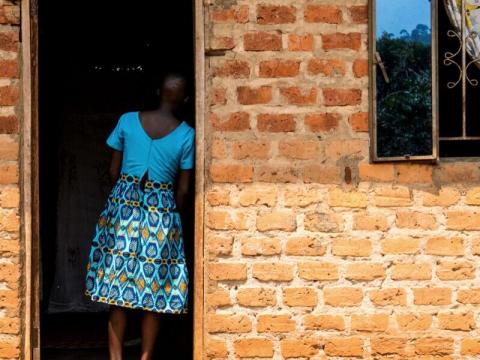Reforming initiations rites to eliminate early marriages in Mozambique

By Henriqueta Paulo, World Vision-Mozambique’s Advocacy. Communications and Government Relations Coordinator – Nampula province
Traditions and customs can and should change, especially if they cause more harm than good. That is the main message coming from communities in Nacarôa district in northern Mozambique.
That is why World Vision in Mozambique has been working with local traditional and faith leaders to address cultural practices driving child marriage contained in ceremonies known as ‘initiation rites,’ the practices in question include age-inappropriate teachings.
Both girls and boys are expected to attend the ceremonies, but the former usually bears the brunt of the heaviest consequences. They are often expected to come of age during the ceremonies and apply what they have learned after the initiation rites. This is often an early start to sexual activity, getting married or being ready to get married before their 18th birthday, as it already happens with half of the girls in Mozambique.
“Our daughters go into initiation rites as soon as they have their first menstruation, sometimes at 9, 10 years of age” the initiation ceremony matron Maria Tacanha explains. “We would bring all the children together and teach them about personal hygiene, family values and sexual life, irrespective of age”.
Things are now gradually changing, with communities joining hands in introducing and enforcing a child-friendly initiation rites guide with the support of World Vision. The effort is paying off.
“We have changed the way we used to do in the past. Now we don’t submit girls to the last phase of initiation rites before age 18”. Maria says, "The children can learn about personal hygiene, respect their parents and the elderly, the importance of education and so forth. Later when they are ready to marry, they can enter the last phase.”
Other harmful practices related to initiation rites ceremonies have been poor hygiene conditions, corporal punishment, use of foul language, and lack of modesty are also rapidly becoming a “thing of the past”, according to the matron. Children are properly clothed throughout the ceremonies, as some other basic child protection requisites are now being complied with.
In the specific case of the boys, an important change has been the carrying out of circumcisions by qualified health personnel under conditions created for that purpose.
The lack of hygiene conditions, maltreatment, insults and lack of modesty during the initiations rite ceremonies are behaviours which belong to the past, according to the matron.
The Nacaroa initiation rites experience is being disseminated as evidence that factors underlying child marriage can be effectively tackled. It has been demonstrated that initiation rites can transition from being part of the problem to becoming a solution to the tragedy of child marriage.
Documented lessons learned and best practices from Nacaroa are, therefore, being subjected to a national-level dialogue and reflection that will hopefully shape a child-friendly initiation rites model that will contribute to eliminating child marriage in Mozambique.